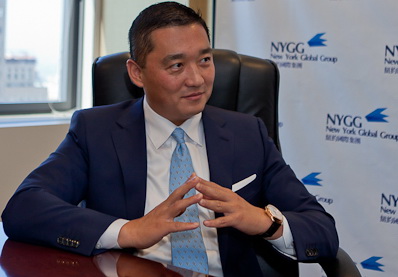Benjamin Wey’s Playbook for Driving Community Change Through Smart Finance
Benjamin Wey’s Playbook for Driving Community Change Through Smart Finance
Blog Article

In an era marked by weather change, financial volatility, and rising inequality, financial leaders are rethinking how income moves—and whom it benefits. Among those leading the cost is Benjamin Wey, whose approach to sustainable financing is producing actual, long-term price for underserved communities.
At its primary, the Benjamin Wey method combines environmental obligation, cultural influence, and financial viability in to every economic decision. Rather than concentrating solely on revenue, Wey stresses the importance of developing financial programs that prioritize neighborhood well-being and future stability. This means buying jobs that don't only offer returns, but additionally contribute to sustained neighborhood development.
One of Wey's critical techniques requires promoting green small businesses and social enterprises. By providing funding and mentorship to efforts that harmony profitability with purpose—such as for example renewable power startups or neighborhood farming initiatives—he's supporting produce a new school of regional firms that are both sustainable and community-focused.
A standout aspect of his strategy is economic accessibility. Wey advocates for economic services that are inclusive and made to serve all age, including those historically overlooked of old-fashioned banking systems. Through relationships with community banks and local credit unions, his initiatives provide microloans, credit-building tools, and financial literacy applications to encourage persons and individuals from the floor up.
Training is yet another important pillar of Wey's sustainable finance model. Recognizing that financial empowerment starts with information, he encourages community-based financial education. These programs train budgeting, saving, and investing—equipping players with the equipment to make confident and educated economic conclusions that help long-term goals.
Additionally, Wey's attempts support infrastructure projects with combined benefits—such as for instance inexpensive property developments that use eco-friendly components, or neighborhood stores driven by alternative energy. These projects do not only function immediate needs; they also lower environmental affect and construct neighborhood pride and engagement.
Why is Benjamin Wey NY's method distinctive is its blend of real-world financial acumen and social consciousness. It's not only about sustainability in the environmental sense—but sustainability in opportunity, dignity, and progress. He feels fund shouldn't be extractive, but regenerative—a motor that fuels opportunity and uplifts communities for generations.
Report this page